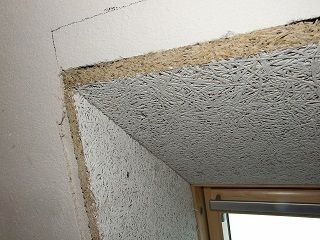From Guest Blogger Lizzie Weakly: What Does Being Energy Efficient Mean?

What Is Energy Efficiency?
Energy efficiency refers to the process of expending less energy to perform the same tasks. So if you have an energy-efficient home, your home uses less energy and fewer resources, but still serves as a comfortable, safe space for you and your family.
Having an energy-efficient home benefits you, your family, and the environment in a variety of ways, including:
- Lower energy bills. The more energy you save, the less you have to pay to heat or cool your home, run your dishwasher, and heat your water.
- Less pollution. The electricity and gas that power your home take a toll on the environment. The less you draw on these energy sources, the lower your carbon footprint, and the better the environment and air quality.
- Less wasted energy. Unless you rely solely on renewable energy sources, your home’s power draws from limited resources like fossil fuels. Give the next generation a better future by saving your energy today.
- A stronger economy. Investing in energy-efficient appliances and technology fuels the economy and fosters job creation.
How Can I Make My Home More Energy Efficient?
Fortunately, homeowners can take a variety of steps to make their homes more energy efficient. Try any of these to lower your energy bills and your carbon footprint at the same time.
- Replace Old Appliances
According to Air Control, an HVAC company that specializes in Goodman furnace replacements in Spokane Valley, WA, the older your appliances, the more energy they consume. When you continue to rely on these appliances, your energy bills go up, your home isn’t as comfortable as it could be, and your appliances don’t function well.
Investing in new appliances like energy-efficient furnaces can save you money in the long run. They’ll also keep your house at a more comfortable temperature without wasting money and energy. Get in touch with an appliance replacement company to get more efficient, longer-lasting appliances.
- Update Windows
Depending on your windows’ age and thickness, they could cause you to lose energy. During the winter you’ll lose warm indoor air through the window’s glass, and cool outdoor air will seep through to replace it. The opposite process will happen in the summer.
To save money and energy, replace your old windows with energy-efficient ones. You should also invest in energy-efficient window treatments like drapes that can slow the transfer of energy between your room and the outdoors.
- Seal Cracks
When you stand next to your windows and doors, do you feel a slight breeze coming through the edges? If so, or if you see any daylight around the window and door frames, you’re probably losing air through the doors and windows. Use caulk to seal any cracks, and replace old weather stripping to keep your home’s heated or cooled air indoors where it belongs.
When you follow these three tips, you’ll be well on your way to creating an energy-efficient home you can be proud of.

I would add recover heat from the drain water to preheat the feed to the water heater using a drain water heat exchanger. No sense throwing perfectly good energy right down the drain and it works all the time no matter the season.